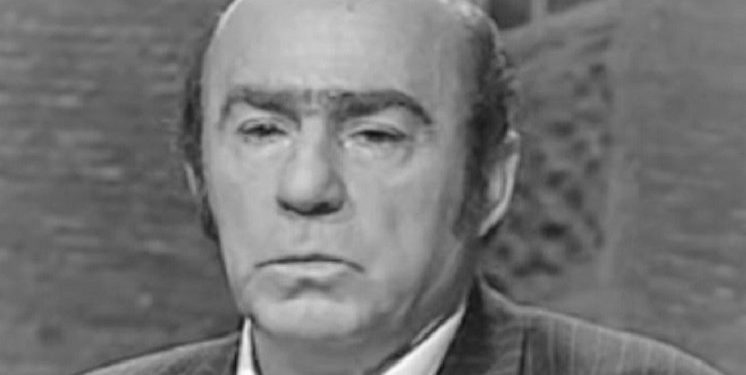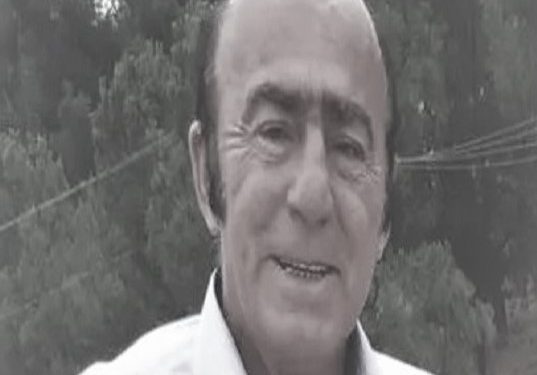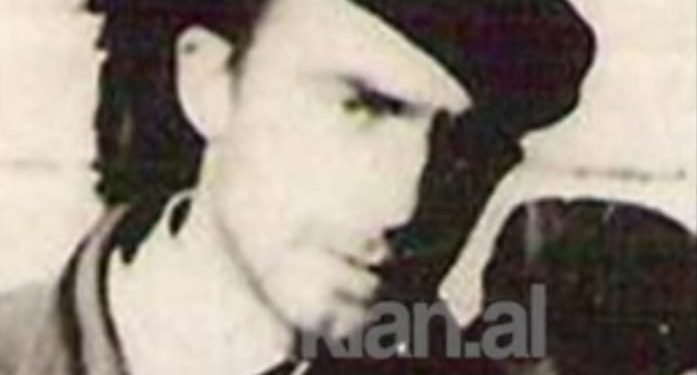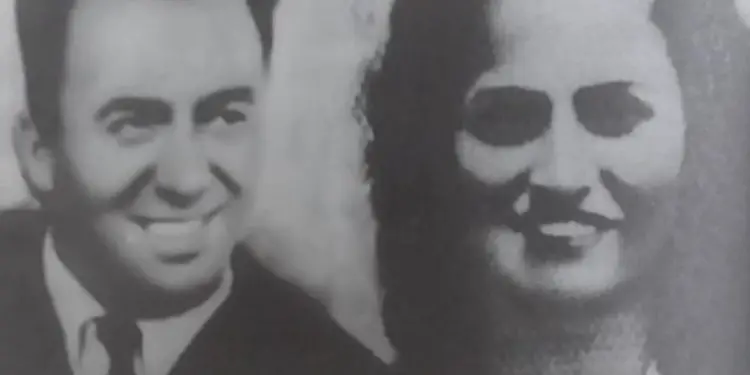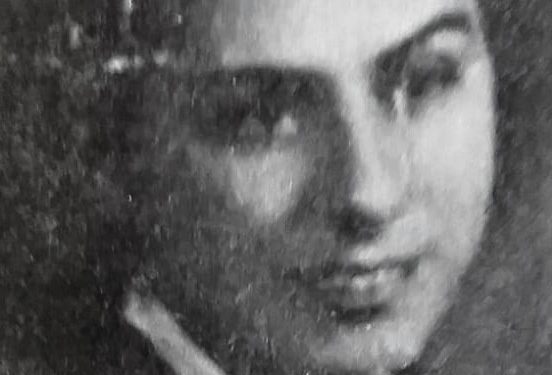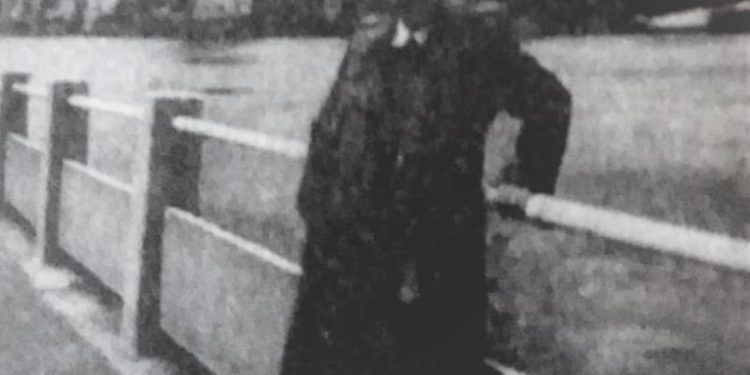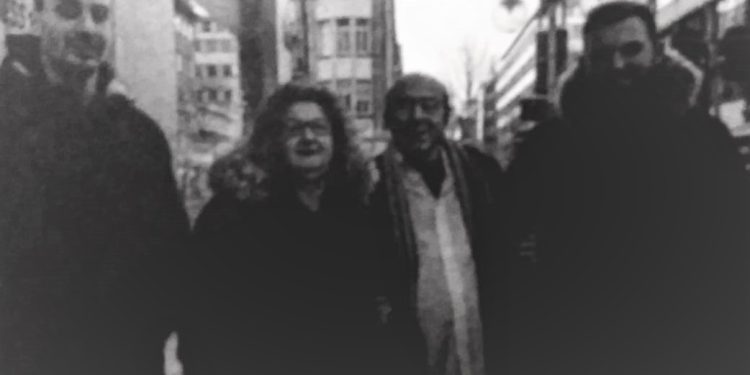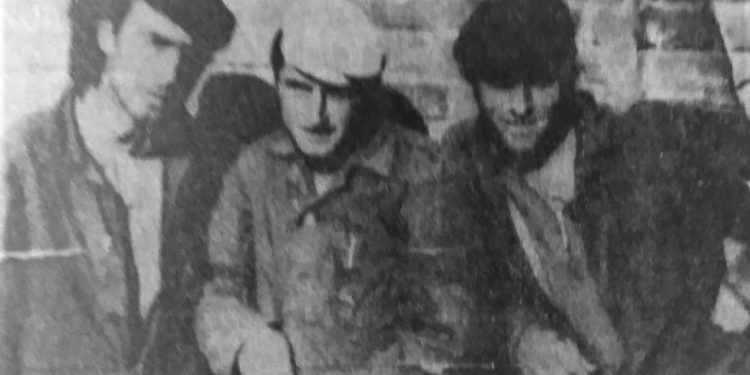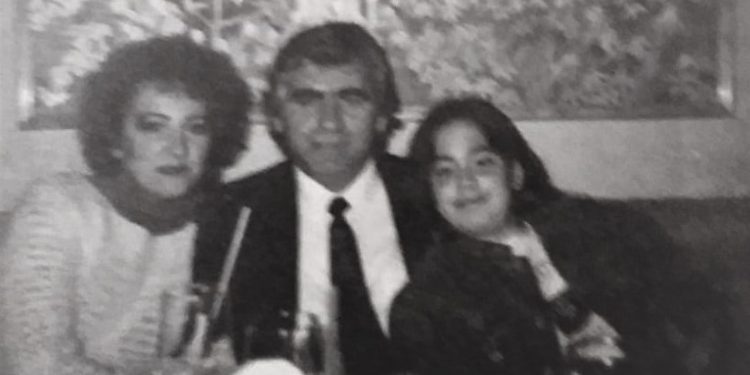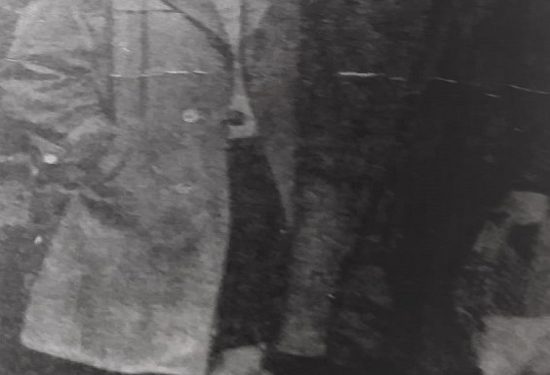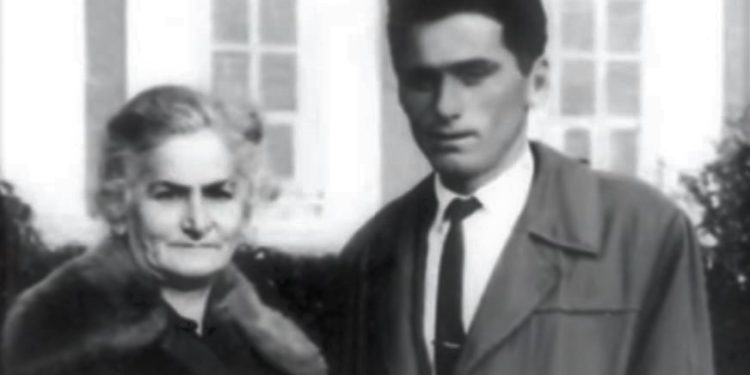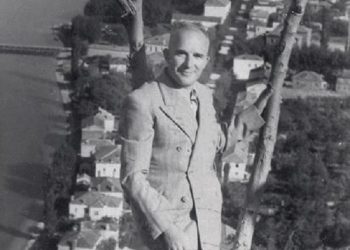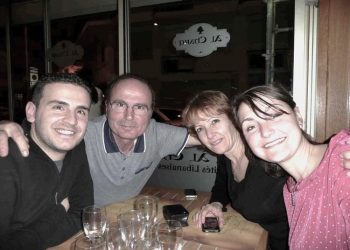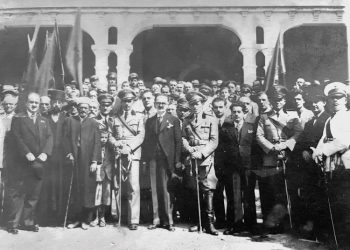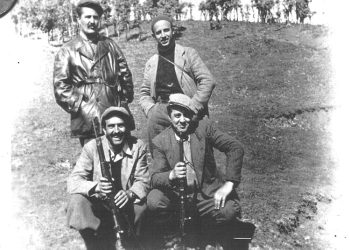By Ylli Tabaku
The fourth part
Memorie.al publishes the memoirs of the former prisoner and political internee, Ylli Tabaku, originally from Tirana, suckling of one of the rich families of the capital, where his father, Ramazan Tabaku, after giving aid and large financial amounts for Peza’s gang during the period of the National Liberation War, after the end of the War, for his contribution, was appointed as Chairman of the Collection Office and in 1947, was sentenced to life imprisonment in the trial of the “Group of Deputies”, which which had come after a debate he had had with Enver Hoxha at the Hotel “Dajti”, where he had asked him not to seize the assets of those who had helped the War. Ramazan Tabaku’s long ordeal in communist prisons and the brutal persecution of his entire family, from his wife and almost all the sons and daughters of that family, who ended up in prisons and internment camps, until the fall of that regime , or they could escape from Albania. All these are described in the memoirs of Ylli Tabaku, (published in his book “Escape”, published by the Institute for the Study of the Consequences of the Crimes of Communism, with foreword by the scholar and historian Kastriot Dervishi), who suffered for 26 years, 8 months and 24 days in the prisons of the communist regime of Enver Hoxha and managed to leave Albania in 1990, (with the events of July 2 of the embassies), living in Germany, until 2021, which was suddenly separated from life, without first seeing the publication of his book!
Memories of the former prisoner and political internee, Ylli Tabaku, who suffered 26 years, 8 months and 24 days in the prisons of the communist regime of Enver Hoxha
Continued from the previous issue
8- In Department no. 321, Burrel, 1967 – 1969
The next day, our camp is surrounded by the Elbasan Corps. We watched from above, how they organized two or three sieges with soldiers, and continued to bring trucks with troops, until our camp was completely surrounded. Two days later, the President of the Internal Affairs Branch of Elbasan, General Nevzat Haznedari, came and with a list in hand, read the names: Pjetër Arbnori, Ylli Tabaku, Kujtim Luzi, and others, a total of 15 people, threw us in the prison and sent us to Burrel.
This was a terrible prison, where with the slightest mistake, they would not let you go back to the room, but open the door, and say – here not in the room, why were you late to the bathroom, because you were late washing the bowl, – in a word to find excuse. The dungeon was paved with cement, with a small window without glass, and when the temperature was minus 15 degrees, set a tile as a border and say: – do not leave the tile; otherwise it will tie with bars. The insults and insults were unsparing.
I am not going to dwell on it anymore, because I see that I am also worrying myself as I write these lines. Who has been there, knows well what hell it was and understands me very well…!
9- In ward no. 309 Skrofotina, Vlora, years 1969 – 1970
Then I was sent to a camp in Vlora. A saltworks was being built there, the work was very heavy, we loaded stones with wagons and pushed them, again 6 kilometers away. We built large baths for salt concentration. We opened canals submerged in the sea up to our chests, drinking water was brought to us from afar, with barrels of gasoline, and when we drank it in that awful heat, it seemed as if I was drinking gasoline…! In short extreme exhaustion.
10- In ward no. 303, in Spaç, years 1970 – 1972
After two years I was sent to Spaç. Spaç mine was like 400 years ago, especially the pyrite galleries. There the temperature reached up to 45 degrees; imagine how one can work in miserable conditions, with a pickaxe and a shovel, in this hell.
11- In Department no. 321 Burrel and in Prison Hospital, 1972-1976
As a “dangerous” person I was, I was sent back to Burrel. There, after two years, I got a diabetes, at first very aggressive. I drank a one-liter gourd with water and after five minutes, I took out two liters, I lost a lot of weight. They did the tests for me; the sugar had gone 500 out of 120, which is the norm.
The next day I was taken to a hospital in Tirana, where I underwent intensive treatment, taking six bottles of serum a day. I was admitted to the hospital in a very serious condition, but the extraordinary care of Dr. Qerim Sinella saved my life. The years 1974-1976, I spent in the Prison Hospital in Tirana.
12- In Department no. 309, Ballsh, years 1976 – 1979, release
I was sent to Ballsh. The Oil Refinery was built there. She was, almost at the end, and most of the convicts, were staying almost in the camp without work.
After some time, on January 29, 1979, i.e., after 18 years and 3 months, I was released on parole. Erdhi Xh.H. and took me. I went to Tirana and lived with my two sisters and granddaughter. The elders lived at the Angel’s house, with his bride and daughter, Rezarta. While the Angel, had already escaped for three years.
From prison, in exile, 1979 – 1980
My stay in Tirana did not last long, except for two months, after an officer came and told me how we had been sentenced to 5 years of exile in Baldushk, – therefore, – he said, prepare the things that the car will come to pick you up. With decision no. 2, dated 5.3.1979, of the Special Commission on Internment Deportations, among others were interned from Tirana to Baldushk, for 5 years:
-Ramzan Hysen Tabaku, born in 1901, was considered a “rich layer”.
-Sabrije Shaban Tabaku, born in 1931.
–Ylli Ramazan Tabaku, born in 1942.
– Raunela Hilmi Ramadani, born in 1960, daughter of Dhurata.
It did not take long and at the door of our house, a car with 4 policemen came; among the other people who had gathered as curious, I also spotted my little sister, Drita, with all her husband, Kiçon and two children, a five-year-old son and a 10-year-old daughter.
After we finished our work and got ready to leave, Kiço addressed the police: – Is it possible for me to go with them? That as you can see, they are sick and old people. At least help them sort things out.
Come on hip; are there others who will help? – provoked the police crowd.
We set off, and from there we went to the New Bazaar, to the house of the Angel, to receive the elders. Moma was very sick, and they took her on a stretcher. The March wind was blowing and it started to rain lightly and cold, which made us water with all our belongings.
We arrived in the center of Baldushk. There we unloaded our belongings, for the house we had designated for us was far away, on top of a hill. We loaded our belongings, with my entire mom, on a stretcher in a trailer, and headed for the hills. When we reached the hill, we unloaded the luggage down, at the foot of it.
It was already dark and you could not see where he was coming from or who he was, who has been in the village knows full well that it is completely dark. We started packing our belongings, and finally we got to the house where we lived. It was two-chambered, without floors, directly on the ground built of stone and without plastering and without a ceiling: what blew out entered inside and instead of windows, there were two turrets; for baths, it was not even a question, so there was not.
Just as we were wet and exhausted, we tried to take a nap, and how eagerly we waited for the day to dawn, to see where they had brought us.
Finally dawned, I went outside and saw that our house was surrounded by a pretty steep forest, but with lots of grass; behind the house, was a very large tree, which in summer was filled with grapes. The next day, the first thing I did was to change the whole roof – a master knows what it means to line the tiles from scratch so that there is no rain.
Since the elders were struggling a lot, I went to a nearby forest and cut down some trees, which we lit in the chimney of the house. The environment warmed up a bit, but did not let the wind coming from the roof, because as I said, the house was without a ceiling.
The next day I went to the carpenter of the cooperative and cried for him, and while talking I expressed my opinion and told him that I intend to make a type of ceiling. For this, it had occurred to me to take and use old plastic from the greenhouses, as they changed it every year with a new one. He was a very kind guy and very willing to help me.
“Well,” he said, “you are ready in ten minutes.” He took a board and made it with slats, he also gave me a nail. I immediately left for home, with some joy, because I was sure that mom and dad would feel better, warmer and calmer. My mom, as I mentioned above, was sick, while my dad, who had only been with him for two months, could feel his breath as I stood next to him. I had never tried my father’s petting because when I was convicted, he was still in jail.
After a few more days, I decided to build a pair of stairs on the hillside, because as it was a hillside, it was very difficult to climb after sliding. I took a pickaxe and dug, forming 120 steps, and at every ten steps, I created a resting place.
In addition, I cut some grass tiles, and laid them on top. It turned out a very nice and functional thing at the same time, as if it was paved with a green carpet, and of course, that climbing home became much easier. In front of the house, I worked a strip of land and planted it with a kind of broom, thinking that I would produce the broom that was useful and necessary for every house. “I can make some money,” I thought.
The broom was a fast-growing plant, and I really keep it there for a week. A green and very beautiful belt was created that immediately caught the eye of all the villagers – as my house at the top of the hill was easily distinguishable from all the others village. They started asking me: – Ore Yll, what is the beauty you have created up there? “Find it,” I said, “you are villagers and you must know what it is.”
Later, they grew, and I cut them. At first I produced ten brooms. When Drita came to visit us, and to bring us something to eat, I gave it to her and she sold it in Tirana. When Drita came again, (she came almost every week, both to see us and to bring us food cooked by her), she brought me another 500 ALL from the money from the brooms she had sold. This amount of money, for us was a lot, as we could buy, at least bread. In the meantime I had prepared others and so this work continued, until I finished them.
In the meantime I went out to work, but for me agriculture was a very hard job. I was sick; I made four needles a day. One day I got sick, I was hospitalized where I stayed for a month. It was not long before I became very ill again. I was admitted to the hospital where I stayed again for a month. When I came out of the hospital, the chairman of the Cooperative called me.
– Ore, how are we going to do with you, – he told me, you stay in the hospital and we pay you. – I’m not going to agriculture, – I said, I’m sick, send me to the construction brigade, I’ve done that job all my life. So it was, I was sent to construction. I was really tired because I had 8-9 km of work away from home and I had to walk every day, but at least I was gaining something more.
A friend, who had been together in several prisons and camps, such as in Burrel, Spaç and others, came one day and brought me a penny mixed with corn: – Take these and plant them, – he told me, explaining how to act. His name was Asllan Shima, he was a local and a wonderful boy with character.
The people of Baldushk are very noble people and they respected me a lot. Everywhere they looked at me, they greeted me, even though they knew that this action was against the communist principles that I was their “enemy”, that is, the “enemy of the people”!
I planted the corn, with all the pennies, and everything was going well and beautiful. Those plants I planted grew as tall as trees, but when it was their turn to prune, for two months in a row, no rain fell, so they remained only branches.
The villagers looked at all that corn on the hill, they knew I had no cows and one day someone stopped me and asked me:
-O Star, you do not have cows, what are you going to do with the corn straw?
“I do not know,” I said.
-Does he sell me? Said the peasant.
“Yes, more,” I said.
-How much will you sell me? – The villager told me.
-Where do I know, you count how many working days it took me to work the land and plant it, and at the same time the seed.
“Do not worry,” said the farmer, “to harvest it myself and do it all.”
I do not remember how much money he gave me, but I can say, so I remember, that I was left satisfied. I planted a piece of land, a little, for me and my dad. Dad had a razor blade, and the cigarettes were shaking with tobacco leaves.
During our time living in Baldushk, in particular, Drita, has helped us a lot. She worked in a club at “Brraka”, as a cleaner. She would collect the leftovers of bread, of the Panini left by the customers, and of the friends who watched her, she would say: – I love them for the chickens. In fact, with that leftover bread, she fed her children, in order for her to save to bring us something to eat, in exile.
By no means small, but very great was the help of Jim, who often came together with his wife, Ermira, the daughter of the communist general, to help us, as “enemies of the people and the Party.”
This kind of arduous life, sometimes with bread and sometimes without bread, that there were times when we stayed even three days without eating. But for me it did not last long, and for others, it lasted long. Memorie.al
The next issue follows




